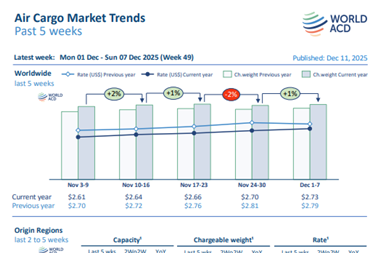The latest figures from consultant Seabury shows that air cargo capacity is 35% lower than a year ago.
Figures released by the company show that most trade lanes are seeing capacity reductions compared with a year ago of between 30-60%.
Some of the hardest hit trade lanes are Europe-Africa, which is down 59% in both directions, and South America-Europe, which is down more than 60% in both directions.
North America to Asia Pacific has seen a 17% reduction in capacity while in the reverse direction there was a 19% drop.
Asia Pacific to Europe is down 30% while the reverse direction has reported a 32% fall in capacity.
"The global decline in belly capacity continues as airlines around the world park passenger aircraft, freighter capacity has been relatively stable over the last four weeks after increasing earlier in the year," Seabury said.
"Carriers from China and Hong Kong were the first to cut capacity, followed by other Asian carriers. Carriers from other regions substantially reduced capacity three weeks ago and are now all at similar levels."
While capacity has sharply dropped over the last few weeks, demand has fallen by a smaller amount resulting in rising load factors.
The latest figures from data-provider CLIVE show that global cargo volumes fell by 23% in March compared with the same four weeks of 2019.
Meanwhile, the dynamic load factor for the four-week period of 68% represented a decrease of 1.5 percentage points compared with 2019.















